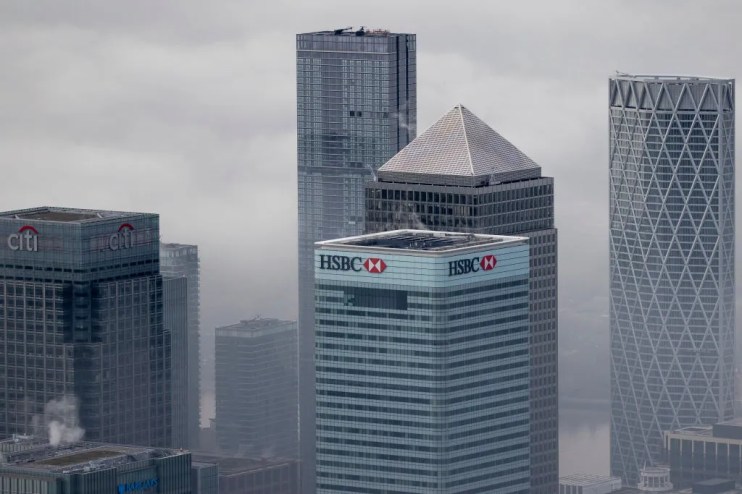Banks face tougher competition as profits boost from higher rates fades

The UK’s major listed banks have warned that the tailwind from high interest rates that has driven bumper profits over the past year is coming to an end as lenders compete to offer better deals to customers.
Barclays, Lloyds, NatWest, Standard Chartered and Santander reported third-quarter earnings last week, while HSBC released its results today.
Most saw their share prices fall last week, with the biggest one-day drops felt by Barclays, NatWest and Standard Chartered.
Banks have warned that changing customer behaviour is eroding their net interest margins (NIM) — an indicator of profitability measuring the difference between what banks pay out and receive in interest.
Barclays shares fell more than eight per cent after the bank lowered its NIM guidance amid fierce competition in the deposit market.
NatWest stock plunged as much as 18 per cent after its NIM slipped and investors also weighed a review into a “debanking” row with Nigel Farage
“We expect that [NatWest] will be a relative loser as investors switch from interest rate sensitive stocks into higher quality banks that are likely to deliver more sustainable shareholder returns,” said RBC analyst Benjamin Toms.
“We worry about the bank’s cost control in an environment where inflation is running high and that the bank’s asset quality could underperform peers in FY23.”
The bank’s internal review found on Friday that former boss Dame Alison Rose made an “honest mistake” when she leaked confidential information about the former UKIP leader’s finances to the BBC.
While the Bank of England has paused its interest rate hiking campaign, rates are expected to remain higher for longer to control inflation.
This environment may weigh on banks’ margins as customers will have to deal with much higher rates than they have been used to over the past decade.
Meanwhile, competition is increasing within the mortgage and deposit markets as banks are being forced to offer savers better rates.
Santander reported on Wednesday that its UK business reduced mortgage lending by £10.1bn due to the higher cost of capital, sending shares down 1.5 per cent.
The Spanish bank said households and businesses would continue to feel the pressure of high-for-longer interest rates, with its NIM forecast to peak in 2023.
“Competition for savings and mortgage products, coupled with some regulatory pressure, means the banks are no longer seeing such a big gap between what they charge on borrowings compared with what they pay out for deposits,” said Russ Mould, investment director at AJ Bell.
“While bad debts remain under control for now, the market is clearly wary of a deterioration here as the pressures on households and businesses continue to mount. Higher interest rates have not been the panacea for the sector that some might have hoped.”
Lloyds proved more resilient, with the stock remaining little changed by the end of Wednesday after its pretax profit exceeded expectations and NIM fell in line with forecasts.
The bank noted “broadly stable credit trends and resilient asset quality”, as well as a better macroeconomic outlook.
HSBC announced a further $3bn in share buybacks as higher interest rates ensured that the Asia-focused lender’s profit more than doubled.
Elsewhere, Standard Chartered fell nearly 13 per cent after taking almost $900m in charges linked to China’s troubled economy, which has been hit by a real estate crisis.